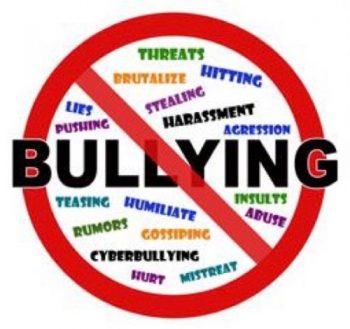So much has been written about the effects of bullying. We have done our research, we know our facts and we have statistics. And yet, bullying is still a huge problem – nowhere more than in our own community. Australia has one of the highest rates of bullying in the world with one in four children reported to have been bullied on an ongoing basis.
Bullies are cowards. They need to feel in control. This is why their hapless victims are more often than not the more vulnerable amongst us. Bullies are often surrounded by their posse. It makes them feel braver. It gives them an audience and, of course, it makes their victim feel even more isolated. The impact of bullying on children is enormous. Children who are bullied are more likely to have lower academic grades; feel vulnerable, disconnected, anxious, depressed and lonely; have low self-esteem; have nightmares and develop a lack of trust or suspicion of others. As part of the research for this article, one child – a victim of bullying, stated:
“When I was bullied it was the worst time of my life…I felt so alone when they teased me and beat me up. I wanted to lock myself in a dark room and cry myself to sleep. I was too scared to go to school or walk home because I feared the bullies were just waiting around the corner so they could beat me up.”
No child, in our society, should have to endure this pain. Left untreated, these children can grow up to develop substance abuse issues, relationship issues, lingering feelings of anger and bitterness, reduced occupational opportunities and massive self-esteem issues. Even more concerning, is that victims of bullying are nine times more likely to develop suicidal tendencies. With mental health issues in this country at an all-time high, it is time that we all take this matter more seriously.
So why then is bullying such a problem, and what of the bullies? Perhaps it is time to shift our focus. Children who become bullies have just as many issues as their hapless victims. Research shows that bullies have lower levels of moral reasoning, empathy, impulse control and anger management skills than other students and often believe that the use of aggression is an acceptable method of achieving their own goals. These children, as adults, are more likely to have poor relationships and be associated with theft, violent behaviour, binge drinking and drugs.
So why do children become bullies? Bullying is, in part, a learned behaviour. These children have often not been given boundaries or consequences for their aggressive behaviour. They can be mimicking a parent or role model who shows aggressive behaviour. Bullying is also a very common response when parents are going through conflict, separation or divorce. It is a sign of a child who is not coping – their way of gaining control in a world that is otherwise out of control. It stems back to the survival instinct known as the “fight or flight response”, a defence mechanism akin to “if I act tough, nothing can hurt me”.
Whilst our schools certainly have a responsibility to keep our children safe, and must be held accountable for incidents of bullying – these policies alone are not enough to stamp out bullying. Emotional development is a learning curve. It is up to us, all of us, to help shape our children into caring, responsible adults. Children need to witness love, affection, caring and responsibility. They need to be held accountable for their actions. This is part of learning. How often do we hear comments such as “kids will be kids”, or “they’re not being bullies, they’re just being normal children”, or a particular favourite “a bit of bullying never hurt anyone, it makes us tougher”. Really?! Tougher, no! Depressed, angry, anxious, avoidant, and even suicidal – yes!
So, what do we, as parents, do about this issue? We make a stand – together. Life is stressful and we do the best job that we can in sometimes very trying circumstances. Having a child with issues is no shame. Doing nothing about it is! Whether your child is the bully or the bullied, they have a problem that needs to be dealt with. We are the adults. We are our children’s most important teachers. We are their advocates. All children need unconditional love and support. This helps them feel secure in this crazy world of ours. We need to help our children feel more confident, talk to them, teach them that being mean or abusive is NEVER okay. Support is essential. If you have no family or friends who can help, then seek out assistance from a support group, but most importantly of all – do something!!


